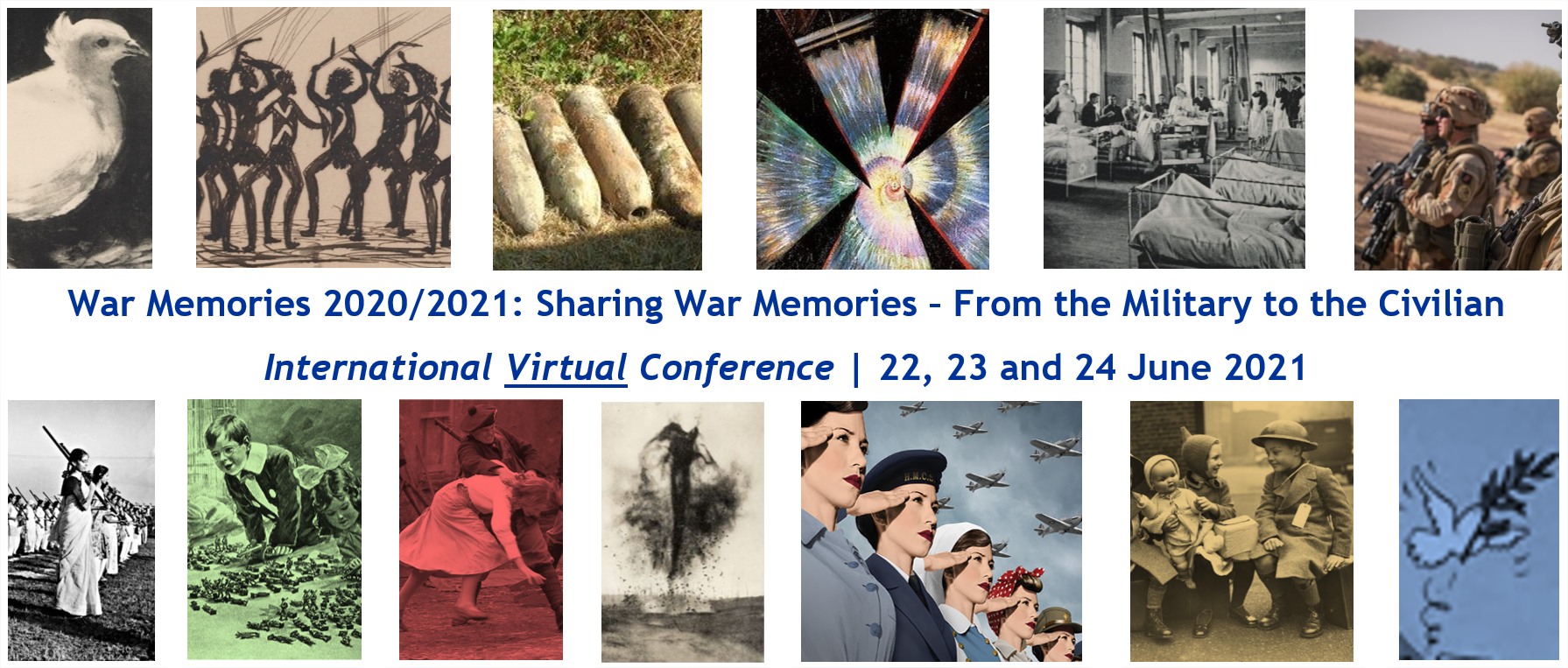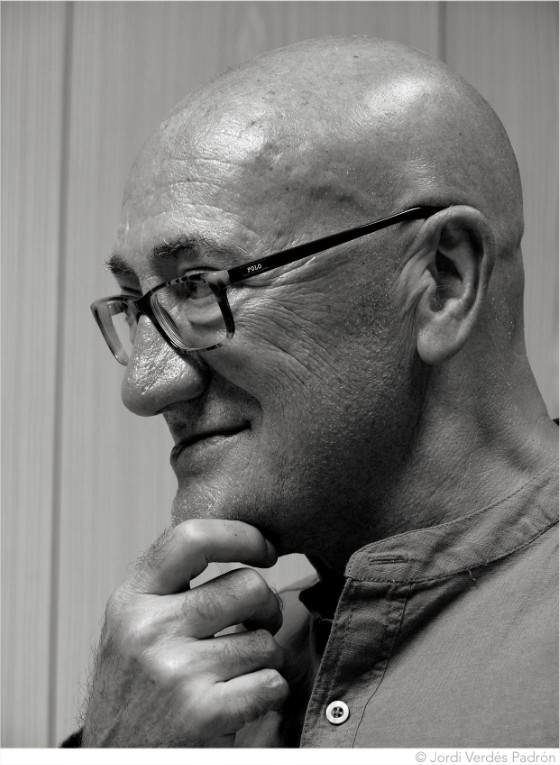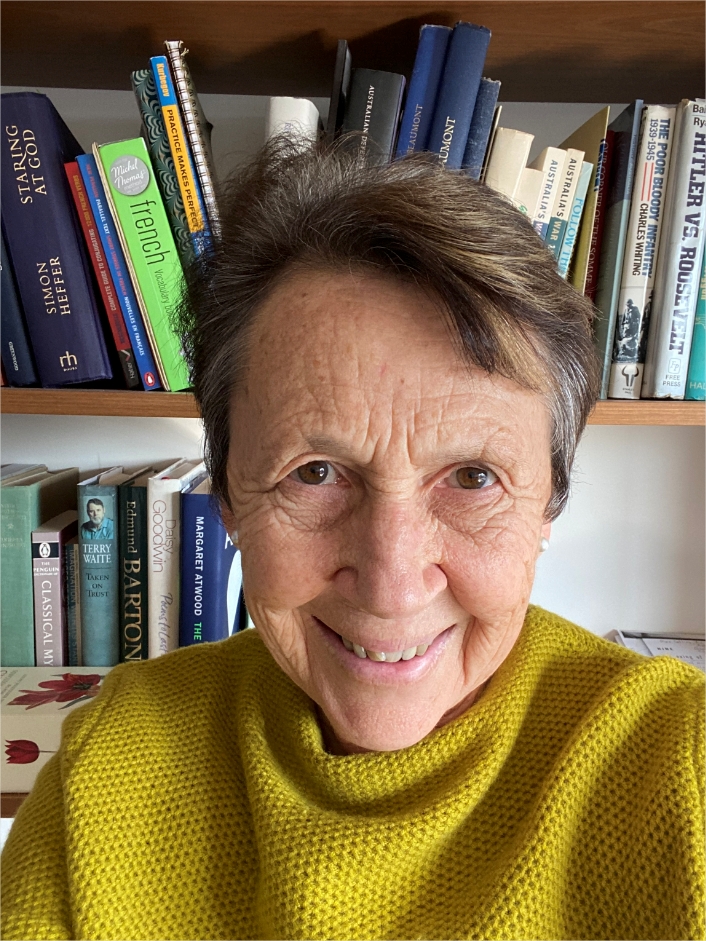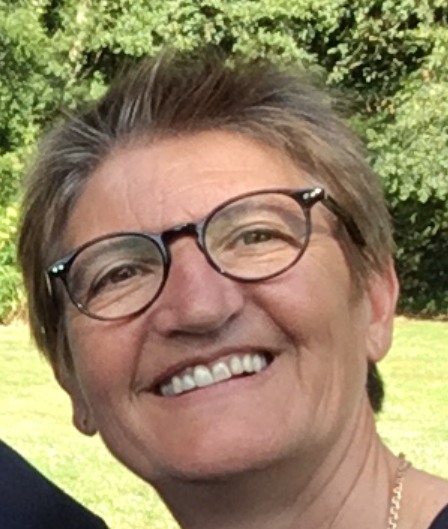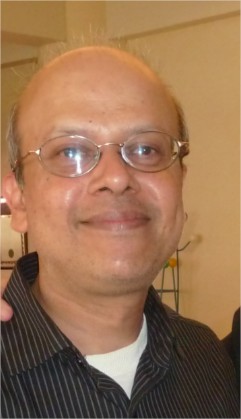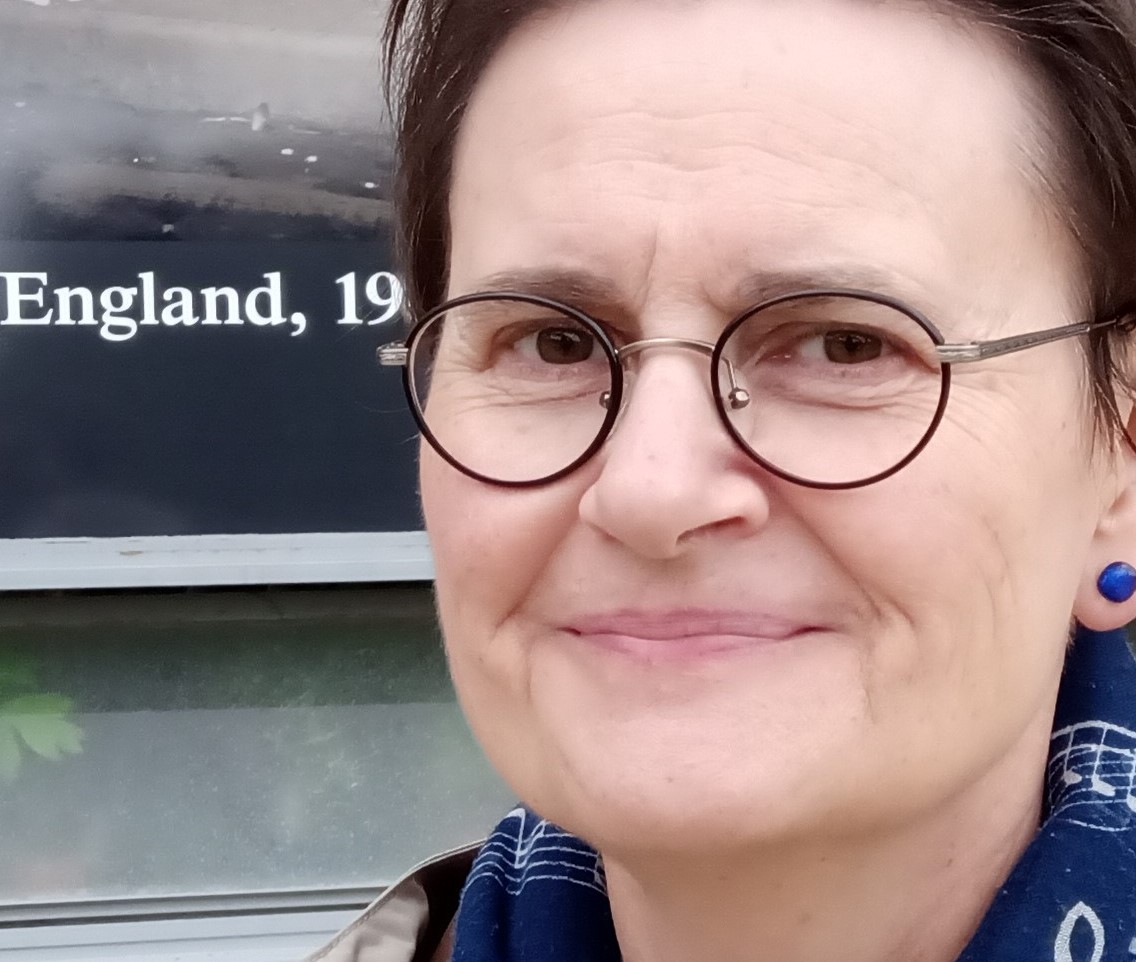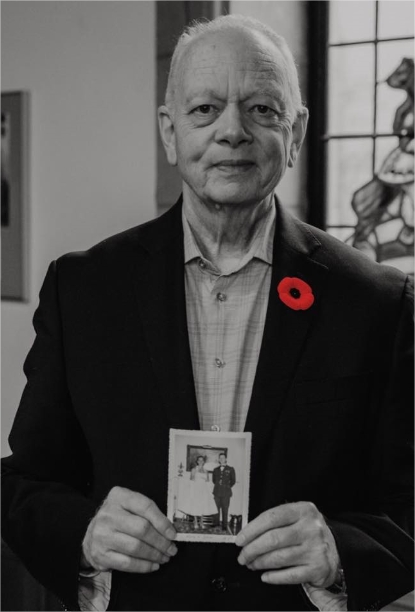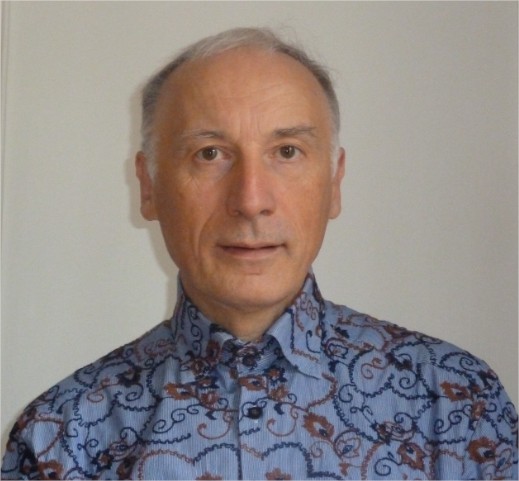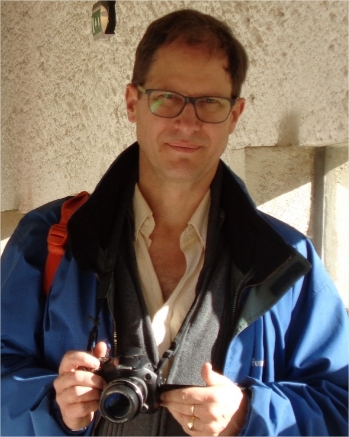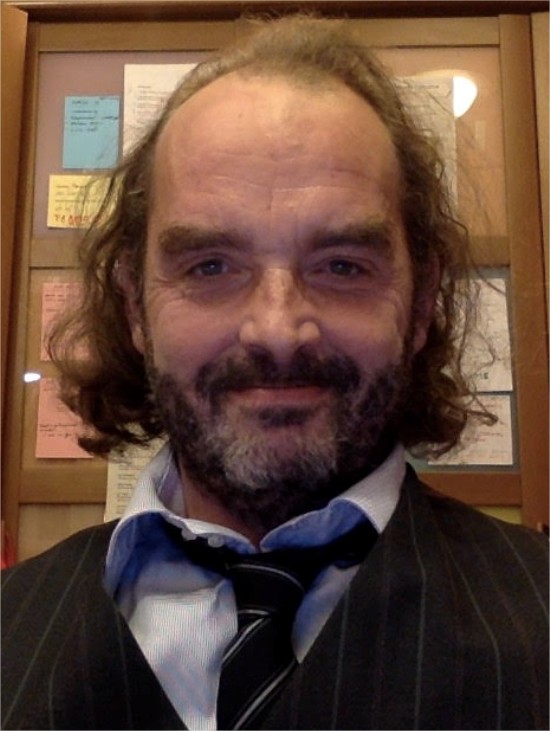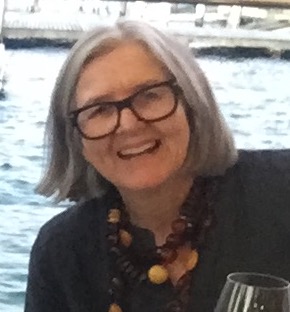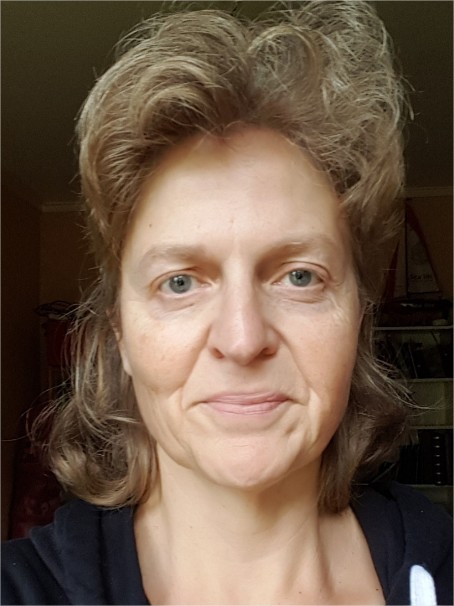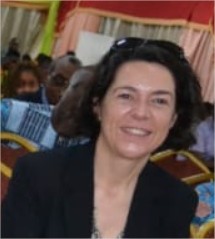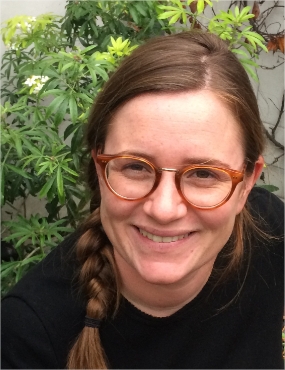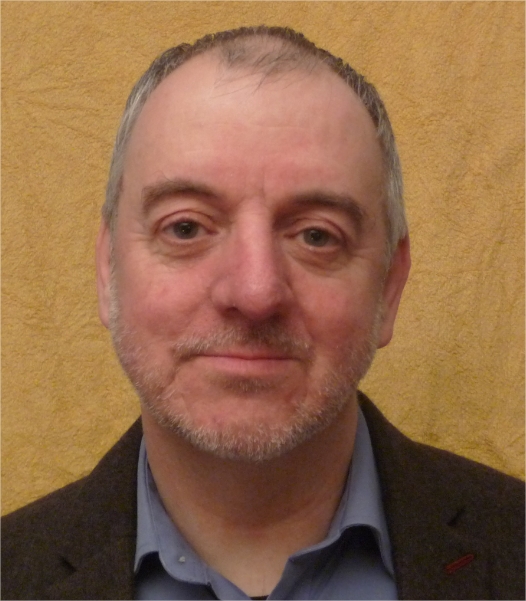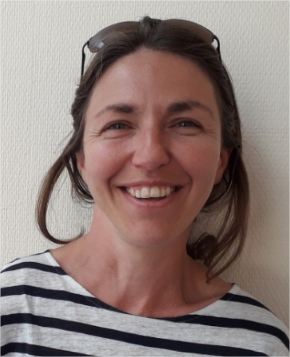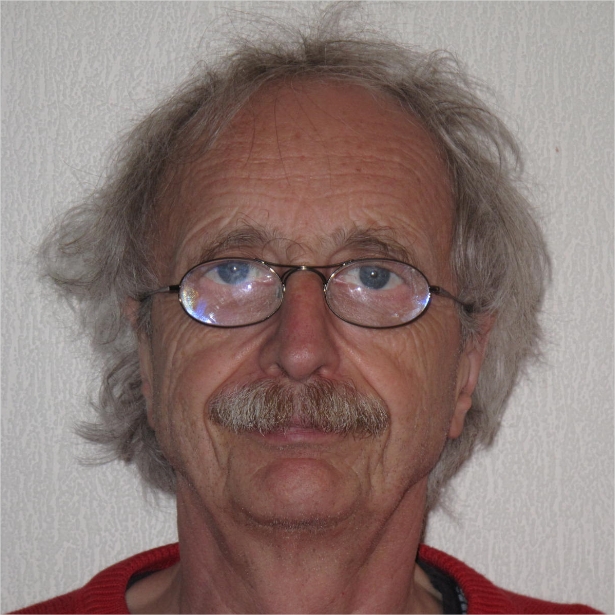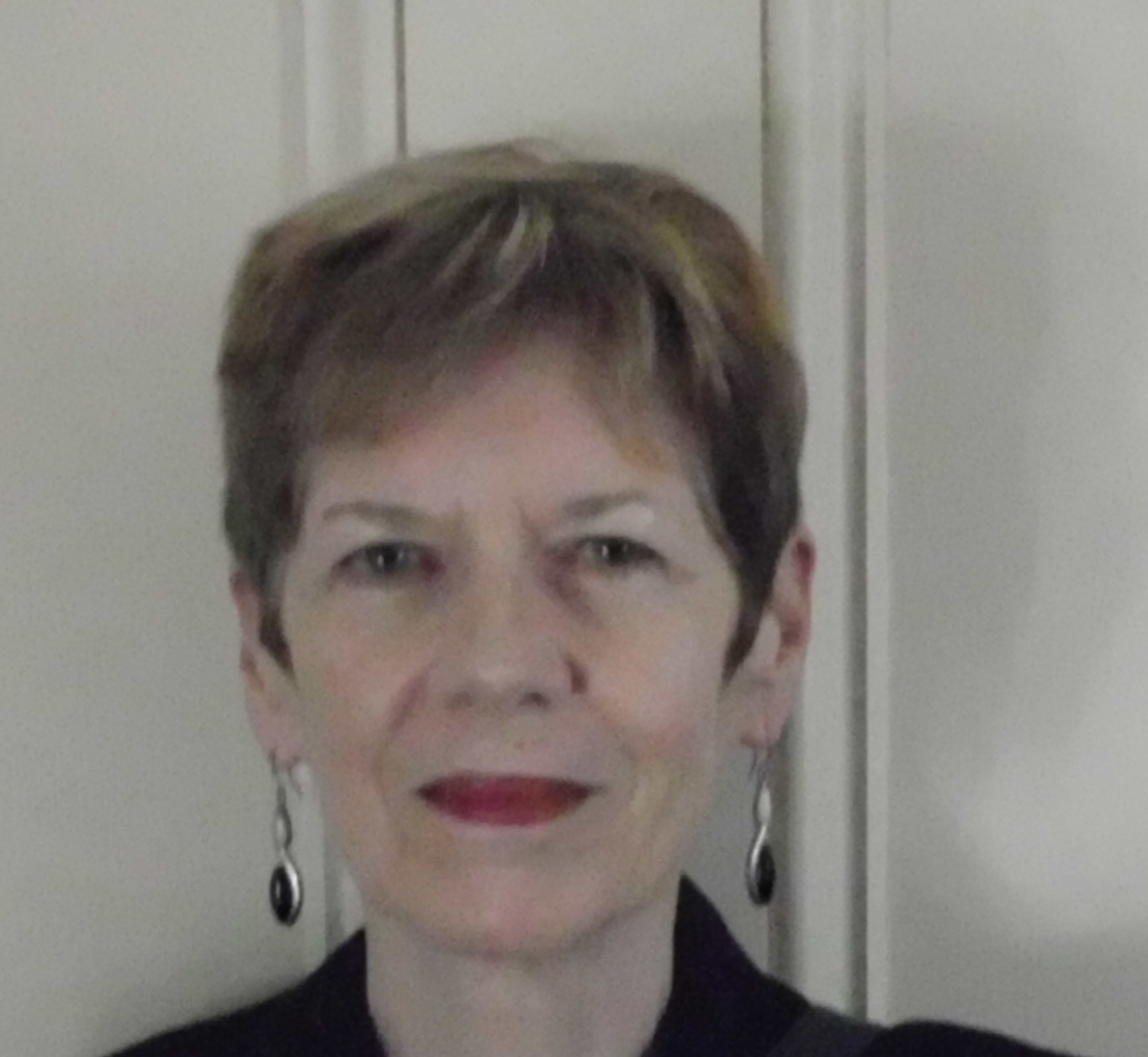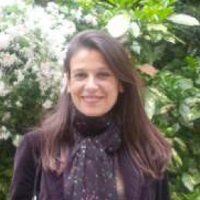Scientific and Organizing Committees Organizing Committee
22th June 2021 : - Delphine Lemonnier-Texier (Université Rennes 2)
Scientific Committee
Antonio Altarriba est professeur de Littérature Française à l’Université du Pays Basque (à la retraite). Il travaille, d’un côté, sur les aspects visuels de l’écriture et, de l’autre, sur les possibilités narratives de l’image. Il est aussi intéressé par la littérature érotique. Sur ces sujets il a écrit des nombreux articles et des livres comme La España del tebeo (L’Espagne de la BD) (2001), Tintin y el loto rosa (Tintin et le lotus rose) (2007) ou La paradoja del libertino (Le paradoxe du libertin) (2008). Comme scénariste, il est auteur d’albums bd comme Amores locos (Amours fous) (2005), El brillo del gato negro (L’éclat du chat noir) (2008), L’art de voler (2009), El paso del tiempo (Le passage du temps) (2010), Moi, assassin (2014), L’Aile brisée (2016), Cuerpos del delito (Corps du délit) (2017) Moi, fou (2018) et des séries photographiques reprises dans des volumes tels que El elefante rubio (L’éléphant blond) (2007) ou Vida Salvaje (Vie sauvage) (2008). Comme écrivain de fiction, il a publié, entre autres romans, Cuerpos entretejidos (Corps entretissés) (1996), La memoria de la nieve (La mémoire de la neige) (2002) et Maravilla en el país de las Alicias (Merveille aux pays des Alices) (2010). Son oeuvre est traduite à une quinzaine de langues.
Joan BEAUMONT Joan Beaumont is Professor Emerita at the Australian National University, Canberra, Australia, and Honorary Professor, Deakin University, Victoria. She is an historian of Australia in the two world wars, the memory and heritage of war and the history of prisoners of war. Her publications include the critically acclaimed and multiple prize-winning Broken Nation: Australians and the Great War (Allen & Unwin, 2013). She is currently writing a major integrative history of Australia in the aftermath of World War I and during the Great Depression. https://researchers.anu.edu.au/researchers/beaumont-je
Stéphanie BÉLANGER Dr. Bélanger is the Associate Scientific Director of the Canadian Institute for Military and Veteran Health Research, a unique consortium of 45 Canadian universities dedicated to researching the health needs of military personnel, Veterans and their families. She is co-editor in chief of the Journal of Military, Veteran and Family Health (University of Toronto Press funded in 2015). She is also co-founder of the The New Directions in Foreign Policy, Military, and Security Studies series with McGill Queen’s University Press (MQUP, funded in 2016). She is the co-editor of War Memories: Commemoration and Writings of War in the English-speaking World (MQUP 2017 – in press); “Beyond the line: Military and Veteran Health Research” (MQUP 2013); “A New Coalition for a Challenging Battlefield” (CDA Press 2012); “Shaping the Future” (CDA Press 2011) as well as of “Transforming traditions: the Leadership of Women in the Canadian Navy” (CDA Press 2010). She is also author of the monograph “Guerre, sacrifices et persécutions” (Paris: L’Harmattan, 2010). She co-chairs the CIMVHR annual Forums, the bi-annual conferences on War Memories (with Université de Rennes 2 and Paris VII), the annual conferences on Military ethics, and she partners with many other institutes to co-host workshops. She is Board of Directors Member of the North-American chapter of the International Society for Military Ethics (ISME), the Center for International and Defence Policy (CIDP) and the Last Post Fund. She was inducted as a member of the College of young scholars of the Royal society of Canada in 2016. She is a Professor in the Department of French Language, Literature and Culture at the Royal Military College of Canada where her research focuses on War Testimony, Soldier Identity and Moral Injuries. She specializes in Military Ethics and Just War Theories. She completed her PhD degree at the University of Toronto in 2003 and her MPA degree at RMCC in 2013. She serves in the Royal Canadian Navy as a reservist since 2004. https://cimvhr.ca/our-team/stephanie-belanger/
Jonathan BIGNELL Jonathan Bignell is Professor of Television and Film in the Department of Film, Theatre & Television at the University of Reading, UK. He works primarily on television history and the methodologies of television, film and media analysis, using archival sources alongside the detailed study of the audio-visual form and style of audio-visual texts. His writing about war includes studies of warlike toys (such as G.I. Joe and Action Man) and related British and American children’s television and films, and includes chapters in War, Culture and the Media (eds Stewart and Curruthers), A Necessary Fantasy (eds Watkins and Jones) and Indeterminate Bodies (eds Segal, Taylor and Cook). His writing includes three editions of An Introduction to Television Studies, A European Television History (edited with Andreas Fickers), two editions of British Television Drama: Past, Present and Future (edited with Stephen Lacey), Popular Television Drama (edited with Stephen Lacey), and his monographs Beckett on Screen and Postmodern Media Culture. His articles about television include contributions to the journals Adaptation, Critical Studies in Television, the Historical Journal of Film, Radio and Television, Media History and Screen. He is Assistant Editor of the journal Adaptation and a Corresponding Editor for the Critical Studies in Television journal. He serves on the editorial advisory boards of the New Review of Film and Television Studies, Revue LISA, the International Journal of Scottish Theatre and Screen, Studies in Documentary Film, the Journal of Popular Television, Symbolism: An International Annual of Critical Aesthetics and the Journal of Science Fiction Film and Television. He is a Series Editor of Manchester University Press’s ‘Television Series’, which publishes books about the work of individual screenwriters and producers. Jonathan is the Director of the Television Drama Studies Research Group at the University of Reading, and since the 1990s he has led collaborative research teams working on seven long-term projects valued at around £4 million: ‘Harold Pinter: Histories and Legacies’ included studies of the British playwright’s radio dramas, television plays and film screenplays, ‘Spaces of Television’ studied the interactions between production technologies and aesthetic forms in British television fiction, ‘Acting with Facts’ researched performance modes in drama-documentary hybrids, ‘British TV Drama and Acquired US Programmes’ analysed relationships between British-made and imported programmes, ‘Beckett and the Phenomenology of Doodles’ studied ephemeral artwork in the collection of Samuel Beckett’s manuscripts at the University of Reading, ‘Cultures of British Television Drama’ investigated histories of popular television fiction, and ‘The BBC Wednesday Plays and Post-War British Drama’ studied relationships between dramatic forms in television and theatre. Jonathan serves on the Advisory Committee of the British Association for Modernist Studies, he is Chair of the Southern Broadcasting History Group, a founding member and Trustee of the Graduate Centre for International Research in Childhood: Literature, Media and Culture (CIRCL), and a Trustee of the Beckett International Foundation at the University of Reading.
Florence BINARD Florence Binard is Professor in Modern British History and Gender Studies in the Department of Intercultural Studies and Applied Languages at Université de Paris (France). She is a member of ICT (Identities, Cultures, Territories) and she is the President of the Société Anglophone sur le Genre et les Femmes (SAGEF). She co-organized the 2016 War Memories Conference in Paris and she presented a paper on ‘The Greenham Common Women” at the 2018 Kingston War Memories Conference. She is co-editor of Féminismes du XXIè siècle : une troisième vague ? (2017), Femmes, sexe, genre dans l’aire anglophone : invisibilisation, stigmatisation et combats (2017); Revisiting the Great War (RFCB Spring 2015). She is the author of Les Mères de la nation : féminisme et eugénisme en Grande-Bretagne (2016).
Subarno CHATTARJI Subarno Chattarji is Professor in the Department of English, University of Delhi. He has also taught in Japan and Wales. He studied at the universities of Delhi and Oxford. He was Fulbright Senior Research Fellow at La Salle University, Philadelphia (2004-2005), the recipient of a Kluge Postdoctoral Fellowship at the Library of Congress in 2006, and awarded an Academic Writing Residency at the Rockefeller Foundation Bellagio Center, Italy (2017). He was a member of the core group for a British Academy Networking project with the Open University on ‘Globalization, identity politics, and social conflict’ (www.open.ac.uk/Arts/gipsc) and coordinating member of ‘Prospects for English Studies: India and Britain compared,’ a two-year research project funded by the Arts and Humanities Research Council, UK (http://www.open.ac.uk/arts/research/ind-uk-es/). His publications include: The Distant Shores of Freedom: Vietnamese American Memoirs and Fiction (Bloomsbury Academic, Forthcoming November 2019); Reconsidering English Studies in Indian Higher Education (Co-author, Routledge, 2015); Tracking the media: interpretations of mass media discourses in India and Pakistan (Routledge, 2008); Memories of a Lost War: American poetic responses to the Vietnam War (Oxford University Press, 2001). He is co-editor of The Hoot Reader: Media Practice in Twenty-First Century India (Oxford University Press, 2013), Globalization in India: Contents and Discontents (Pearson Education, 2009), and An Anthology of Indian Prose Writings in English (Penguin, 2004).
Nicole CLOAREC Nicole Cloarec is a Senior Lecturer in English at Rennes 1 University (Univ Rennes, LIDILE-EA 3874, F-35000 Rennes, France). Her research focuses on British and English-speaking cinema and in particular questions related to transmediality, adaptation and the documentary. She is the author of a doctoral thesis on Peter Greenaway’s films and a number of articles. She has edited two collections of essays on letters and written materials in films and has recently co-edited Social Class on British and American Screens. Essays on Cinema and Television (McFarland, 2016), “The Specificities of Kitsch in the Cinema of English-Speaking Countries” (LISA e-journal, 2017) and Ian McEwan's Atonement and Joe Wright's Film Adaptation (Ellipses, 2017).
Magali DELEUZE Dr. Magali Deleuze studied history at the Sorbonne (Paris-IV) and completed her Ph.D in history at the University of Montreal. She is associate professor in the History Department at RMC (Royal Military College, Kingston) and Chair of War Studies Graduate program. Her current research interests lie in Canadian external relations and the postcolonial wars, the history of peacekeeping and a new research on "Applied" History: The History of Canadian Military Professionalism. She published, in French, 5 books and many articles on her research. She's currently writing a textbook in French about History of Peacekeeping since Antiquity and co-editor of a bilingual book about History of Peacekeeping: New Perspectives (forthcoming).
Jeffrey DEMSKY Jeffrey Demsky studies warfare and genocide memorialization. His specific interest is American pop culture representations of the Holocaust. Dr. Demsky is a tenured member of the History Department at San Bernardino Valley College (US). His scholarship appears globally, in essays and articles published across the US, UK, Canada, France, and Germany. Professor Demsky’s forthcoming research includes his manuscript, “Irreverent Remembrance: Nazi and Holocaust Memorialization in Anglo-American Popular Culture, 1945-2020.” This work is contracted with Academic Studies Press. Additional upcoming scholarship includes, “We Are a Long Ways past Maus: Responsible and Irresponsible Holocaust Representations in Graphic Comics and Sitcom Cartoons (Palgrave Handbook of Holocaust Representation) and “Stretch Cunningham, We Hardly Knew You: Seeing Jews and “Others” through Archie Bunker’s Eyes” (Jewish Film and New Media).
Renée DICKASON Renée Dickason, who obtained her professorship in 2001, began her career about thirty years ago, at Rennes 2 University where she currently works, having taught for nine great and happy years at the University of Caen-Basse-Normandie. After enjoying fruitful and stimulating times, in cultural, linguistic, historical and human terms, in the British Isles, she took the decisive step of pursuing studies on the ‘unfathomable and perfidious’ Albion, a challenge, in constant renewal, as she chose a field of research related to contemporary history, more specifically immediate history, amid the historical realities inherited from the past and animated by present-day mutations, in a world at war or at peace. She has favoured local immersive experiences and media approaches, mainly through visual and filmic prisms. Her observations and publications deal with social and political communications, the representation of the ‘real’, in electoral periods and during conflicts, such as the ‘Troubles’ in Northern Ireland and wars in the Gulf and in the Falklands. At the University of Caen-Basse-Normandie, she initiated, with the Maison de la Recherche en Sciences Humaines (CNRS), the Mémorial de Caen Museum, the Royal Military College of Canada (Kingston, Ontario), the International Committee of the Red Cross (Geneva) and researchers from various disciplinary and geographical horizons, a research network on War Memories (WARMEM Project) which will celebrate its 10 year anniversary in 2020. Since her early childhood, Renée Dickason has travelled widely, untiringly seeking to discover new cultures and spaces; she likes to think of herself as an anthropologist of the living moment. Her objectives: to contribute to widening research in Human Sciences, transcending disciplinary frontiers so as to heighten awareness, to educate, to act and to give a profoundly human and humanist meaning to ongoing and forthcoming academic and scientific missions. Her aspirations: pursuing and enriching reflections on crimes, exactions and human aggression which colour, through significant examples, the memorial construction of war phenomena in order to fight against barbarity, to reveal and confront atrocities committed in wartime with the hope of establishing and maintaining peace, wherever it is imperilled. Her professional curriculum vitae can be found at: https://perso.univ-rennes2.fr/renee.dickason.
Eliane ELMALEH Eliane Elmaleh is a Professor in American civilization who teaches American history and civilization at the English Department of Université du Mans, France. Her fields of research are contemporary art, African-American art, feminist and political discourses, the American media and identity politics. She has published a number of articles in scholarly reviews such as Annales du Monde Anglophone, Revue Française d’Etudes Américaines, European Journal of American Culture, E-rea and LISA e-journal, les cahier du MIMMOC or Transatlantica and in collective works (Both Swords and Ploughshares, Interactions of War, Peace, and Religion in America from the War of Independence to the Present, Troubled Legacies : Minority Literatures between Impossible Inheritance and the Reinvention of Traditions, Mémoire(s), identité(s), marginalité(s) dans le monde occidental contemporain, Marges et Périphéries dans les pays de langue anglaise, Marginalité et politiques sociales, réflexions autour de l’exemple américain...) . She recently co-edited several books on power and resistance: Résistances, voix citoyennes en marge des institutions politiques (Resistances, citizen voices on the sidelines of political institutions), which describes and analyses the different political movements which recently emerged in countries such as Canada, Cuba, Spain, the US, Greece, France or Tunisia as a reaction to the global economic crisis or Argent, Pouvoir et représentations (Money, Power and representations), Aux Origines du conflit : pouvoir, domination, résistance (On the origins of conflict: power, domination, resistance) and L’Ouest et les Amériques, entre arts et réalités, which offers a number of different perspectives of the American West. She also co-organized many international conferences, including some with the collaboration of a group of universities (Le Mans, Paris Ouest Nanterre, Caen and Poitiers), Power Studies Network and the support of l’Institut des Amériques (IdA) whose Western France she has been the delegate of. She is currently Vice-President in charge of international relations at the University of Maine, Le Mans.
Allan ENGLISH Allan English teaches Canadian Military History in the Queen’s University History Department. His book Understanding Military Culture: A Canadian Perspective was published in 2004 and he continues to research and publish in that area. He has taught various courses related to military culture, organizational change, and ethics and the military profession at the undergraduate and graduate levels at Queen’s and the Royal Military College of Canada and to senior and general/flag officers at the Canadian Forces College in Toronto for over 30 years. His latest research examines systemic obstacles to culture change in the Canadian Armed Forces (CAF), especially that change intended to reduce the incidence of sexual misconduct in the CAF. His latest publication on this topic is “Corruption in the Canadian Military? Destroying Trust in the Chain of Command,” Canadian Foreign Policy Journal (2017). He is a member College of Peer Reviewers for the Canadian Institute for Military and Veteran Health Research and a fellow of the Centre for International and Defence Policy at Queen’s University. He is currently the principal investigator of a $210, 000 five-year (2018-23) Veterans Affairs Canada research grant from its Veteran and Family Well-Being Fund to Queen’s University in collaboration with Servicewomen’s Salute Canada to build a web portal supporting servicewomen leaving the Canadian Armed Forces and veteran servicewomen living in Canadian communities.
Georges FOURNIER Georges Fournier is Professor at the Department of Foreign Languages of the Limoges University and a member of the EHIC research centre. His main interest lies in British authored television. He is a member of the InMédia team for which he published articles and supervised issues. He also published articles in the LISA e-review and in foreign publishing houses. He has written many articles on political docudrama and is currently conducting research in factual programming. His latest book, on Peter Kosminsky, examines the work of one of the most prominent British docudrama filmmakers.
William GLEESON William Gleeson is an Associate Professor at Le Mans Université in the English Department. His primary subjects of research are Civil War photographs, landscape photography in general, political uses of images in the 19th century, 19th century visual tropes of destruction, silence, photography as historiography, and the cross pollination of politics and literature in 19th century America. He would love to add baseball history to that list, but no one in France is really interested in baseball, much to his chagrin.
David HAIGRON David Haigron is Senior Lecturer in British Studies at the University of Rennes 2, France. He holds a PhD on British Party Election and Political Broadcasts (2006). His research focuses on political communication and social representations in the media. He is the editor of The English Countryside: Representations, Identities, Mutations (Palgrave Macmillan, 2017) and The UK’s Political Landscape in the 21st Century: Players, Strategies, Achievements (LISA e-journal, XII-8, 2014: http://lisa.revues.org/6932). With N. Cloarec and D. Letort, he has co-edited Social Class on British and American Screens: Essays on Cinema and Television (McFarland, 2016), and, with R. Dickason and K. Rivière-De Franco, Stratégies et campagnes électorales en Grande-Bretagne et aux États-Unis (L’Harmattan, 2009). His publications also include “Our War (BBC3) – The War in Afghanistan as Filmed by British Soldiers: From Capturing the Real to Building a Narrative and a Discourse”, in Stéphanie Bélanger & Renée Dickason (eds.), War Memories: Commemoration, Recollections, and Writings on War (McGill-Queen’s University Press, 2016).
Nikolai JEFFS Nikolai Jeffs teaches at the Faculty of Humanities of the University of Primorska in Koper-Capodistria, Slovenia. His main areas of interest are postcolonial theory and practice, popular music, and the new social movements. He has published several articles and book chapters in the field of literary, cultural, and political critique inclusive of different texts on the cultural aspects of the Nigerian-Biafran war, the wars in ex-Yugoslavia, and of Palestine/Israel. He has also edited and co-edited various academic journals and a Slovene reader in postcolonial studies. He regularly appears on Slovene radio and TV commenting on various cultural and political issues albeit, as of late, these tend to be focused on questions concerning Brexit and is engaged as a public intellectual more generally, too.
Judith KEENE Judith Keene is a research associate in the Department of History at the University of Sydney, Australia. The focus of her research is on the cultural history of twentieth century wars, including the formation of individual and collective memory and the representations of war in art and cinema. She has published widely on the Spanish Civil War, Second World War and more lately on the war in Korea. Recent publications include ‘Picasso’s forgotten painting of the Korean War’, in Cultural History (2017) and edited with Elizabeth Rechniewski, Seeking Meaning, Seeking Justice in a Post-Cold War World (Brill, 2018).
Delphine LEMONNIER-TEXIER Delphine Lemonnier-Texier is a former student of the Ecole Normale Supérieure of Fontenay-St Cloud, and a former deputy Vice-Chancellor of Rennes 2 University (in charge of culture, campus life and sports, 2015-2019). She is currently a senior lecturer in Shakespearean and drama studies at Rennes 2 University. She has written a number of articles and edited collections of essays on Shakespeare’s plays, on the plays of Samuel Beckett, and on Shakespearean intertexts in contemporary TV series. She is currently working on the notions of character and the representation of violence on stage as well as in TV series, and the place of empathy in the reception process. She is also a series editor with Presses Universitaires de Rennes (“Interférences” series co-editor, “Didact anglais” series co-editor and “Univers Anglophones” series editor).
Delphine LETORT Delphine Letort is a Professor in American and Film Studies at the University of Le Mans (France). She has published Du film noir au néo-noir : mythes et stéréotypes de l’Amérique 1941-2008 (L’Harmattan, 2010) and The Spike Lee Brand: a Study of Documentary Filmmaking (SUNY, 2015). She has written articles about film adaptations, documentary filmmaking and African-American cinema in journals and co-edited several books (including Women Activists and Civil Rights Leaders in Auto/Biographical Literature and Films, 2018; Auto/biographies historiques dans les arts, 2017; Social Class on British and American Screens. Essays on Cinema and Television, 2016), two thematic issues for the CinémAction series (Revolutions armées et Terrorisme à l'écran, 2019; Panorama mondial du film noir, 2014). She serves on the advisory editorial board of Black Camera (Bloomington, Indiana) and has been the editor-in-chief of Revue LISA/LISA e-Journal which is hosted by revues.org (CLEO, CNRS, EHESS). Since October 2016, she has been the director of the 3L.AM research team – Langues, Littératures, Linguistique at the Universities of Le Mans and Angers (http://3lam.univ-lemans.fr/fr/index.html).
Adriana MARTINS Adriana Martins holds a PhD in Comparative Literature and is Assistant Professor with Habilitation in Culture Studies at the Faculty of Human Sciences at Universidade Católica Portuguesa in Lisbon, where she is also the coordinator for the scientific area of Culture Studies and a senior member of the University's Research Centre for Communication and Culture (CECC). She teaches Metaculture, Culture and Globalization, Portuguese Culture and Society, and Portuguese Film. Her latest book is Mediations of Disruption in Post-Conflict Cinema (co-edited with Alexandra Lopes and Mónica Dias, Palgrave Macmillan UK, 2016). Her main research interests are Culture Studies, Globalization Studies, Film Studies, Comparative Literature, and Intercultural Communication. Maud MICHAUD Maud Michaud is Assistant Professor in British and colonial history at Le Mans Université. Her work focuses on the British missionary enterprise in the British Empire, especially central Africa. She published articles and is part in research programmes examining the links between race and religion, the contribution of missionaries and amateur scientists to natural history and anthropology museums, and the participation of British children to the missionary enterprise at home in the colonial field.
John MULLEN John Mullen is Professor in British Studies at the University of Rouen-Normandie in France. He teaches classes on the history and historiography of the First World War. He has published research both on the history of British Trade Unionism and on that of British popular music. His book The Show Must Go On: Popular Song in Britain during the First World War was published by Ashgate/Routledge in 2015, and attempted to go beyond the history of musical creation in order to bring together the history of popular music repertoires, processes and audiences, and a wider history of society. Other recent publications have included “Anti-Black Racism in British Popular Music 1880-1920”, as well as articles on Irish songs in Victorian and Edwardian music hall, on the building of “respectability” in Victorian music hall, and on the Notting Hill Carnival as it has reflected, over thirty years, questions of immigrant identity. In 2018, a new volume edited by Pr. Mullen, Popular Song in the First World War: an International Perspective, was published by Routledge. His academic page can be found at http://eriac.univ-rouen.fr/author/john-mullen/
Daniel PALMIERI Trained as historian (University of Geneva; Graduate Institute) and journalist by profession, Daniel Palmieri is working for the ICRC since 1995, first as press officer for several ICRC field operations. Since 2002, he is in charge of the historical research at the ICRC. He is the author of many works dealing with the history of the ICRC, of humanitarianism and the history of war. Last publications: « Humanitarianism on the screen: The ICRC films, 1921-1965 », Johannes Paulmann (ed.), Humanitarianism and Media. 1900 to the present, Berghahn Books, Oxford, New York, 2018; « Se souvenir pour oublier : La politique mémorielle du CICR », Vincent Négri, Isabelle Schulte-Thenckhoff (éds.), Normer l'oubli, IRJS Editions, Paris, 2018.
Cécile PERROT Cécile Perrot is a Senior Lecturer in Commonwealth studies at the University of Rennes 2 (France) and belongs to two research laboratories: ACE (Anglophonie: communautés, écritures. Université de Rennes 2, EA 1796) and the Grer (Groupe sur l’eugénisme et le racisme/ Université Paris Diderot, EA 382). She lived and worked in Cape Town for two years to write her PhD entitled Post-apartheid higher education in South Africa (1994-2004):a successful transformation? which she defended in June 2010. She has since published extensively on various aspects of South African society; from articles on the higher education system to papers on the notion of national identity and reconciliation in the post-apartheid period. She also co-edited with Michel Prum and Thierry Vircoulon a book entitled L’Afrique du Sud à l’heure de Jacob Zuma : La fin de la nation arc-en-ciel ? (L’Harmattan, 2009) and, with Marie-Claude Barbier, a book entitled Afrique du Sud : Mémoire, héritages et ruptures, (collection Racisme et Eugénisme, L'Harmattan, 2018). In addition, she regularly takes part in TV and radio broadcasts on South Africa in order to appeal to a broader audience.
Michel PRUM Michel Prum is Professor Emeritus at the University of Paris. He co-organized the 2016 War Memories Conference and read a paper on ‘Darwin and War’ to the 2018 Kingston War Memories Conference. He is the coordinator of the new French translation of Darwin’s Complete Works for Slatkine (Geneva) and Honoré Champion (Paris) publishing houses, under the scientific direction of Patrick Tort. His research is concerned with the history of ideas in 19th century Britain: liberalism, socialism, Darwinism. He has published many articles on the Ricardian socialists (William Thompson, Thomas Hodgskin, John Francis Bray, John Gray) and on the reception of Darwinism in France (Clémence Royer). He founded the Group of Research on Eugenics and Racism (GRER) in 1998, with a fortnightly seminar on the questions of ethnicity in the English speaking area. He founded the book series ‘Racism and Eugenics’ in 2003 (for l’Harmattan publishers) and has published 55 books so far. He has edited or coedited many books on ‘race’ (as a social and historical construction), on the abolition of slavery, on feminist men, etc. He co-organized several international conferences in Africa (South Africa, Lesotho, Botswana, Kenya and Senegal). He has been working since 2015 with the University of Beijing as Visiting Professor.
Elizabeth RECHNIEWSKI Elizabeth Rechniewski is a Senior Research Associate at the University of Sydney in the School of Languages and Cultures. She has a long-standing research interest in the political uses of the national past and has published widely on remembrance of twentieth century war in Australia, France and New Caledonia, including on the commemoration of the role of indigenous soldiers in these countries. She was commissioned (with Judith Keene) by Olivier Wieviorka to write the official report for the French Ministry of Defence on war commemoration in Australia (La place de la mémoire combattante dans les pays signataires d’accord de mémoire partagée avec la France, Wieviorka 2009) and was invited by Nicholas Offenstadt to give a seminar at the French Ministry of Defence in the series ‘Observatoire du Centenaire’ on the Black Diggers. She was a Chief Investigator on the Australian Research Council Discovery Project: Judging the Past in a Post-Cold War World, 2013-2016, which led to a number of publications on decolonisation in French Cameroon and on the significance of this conflict for the development of the theory and practice of the 'French School' of counter-insurgency warfare. Latest publications include (with Judith Keene): Seeking Meaning, Seeking Justice in a Post-Cold War World (Brill, 2018); “‘Resénégalisation’ and the Representation of Black African Troops in World War One”, in Ben Wellings and Shanti Sumartojo (eds), Commemorating Race and Empire in the First World War (Liverpool University Press, 2018). She was awarded the title of Chevalier des Palmes Académiques by the French government in 2009, and the Ordre national du mérite in 2010.
Sylvie SERVOISE Sylvie Servoise is Assistant Professor in comparative literature at Le Mans-Université (3L.AM/EA 4335). Her research focuses on the relationship between contemporary literature and politics, fiction and History and Memory (France, Italy, Great Britain and United States). She has written two books, Le roman face à l’histoire : La littérature engagée en France et en Italie dans la deuxième moitié du XXème siècle (PUR, 2011), et Politiques du temps : Le Guépard de Lampedusa dans l’histoire (PUR, 2018). She is also Chief Editor of the journal Raison publique, in charge of the section focusing on literature and the arts.
To contact us, please use the @Contact section of the conference website. |
| Online user: 2 | Privacy |

|
